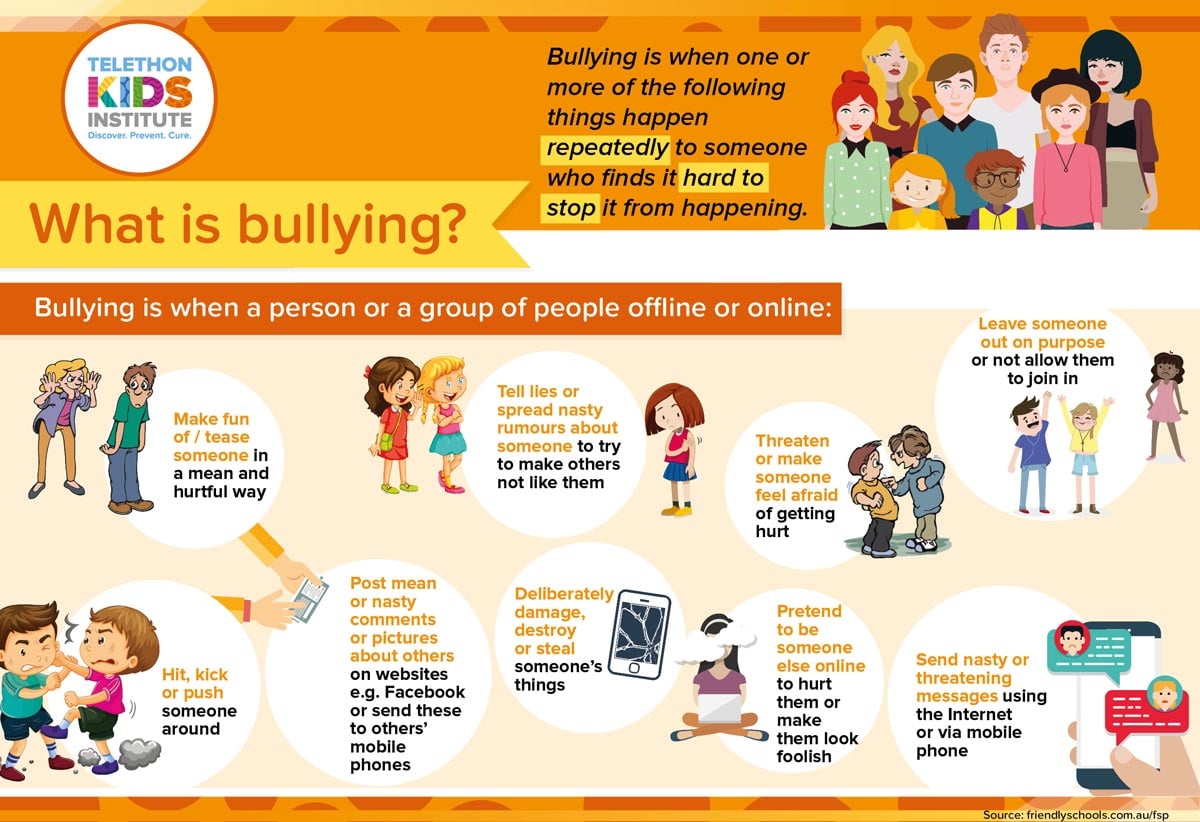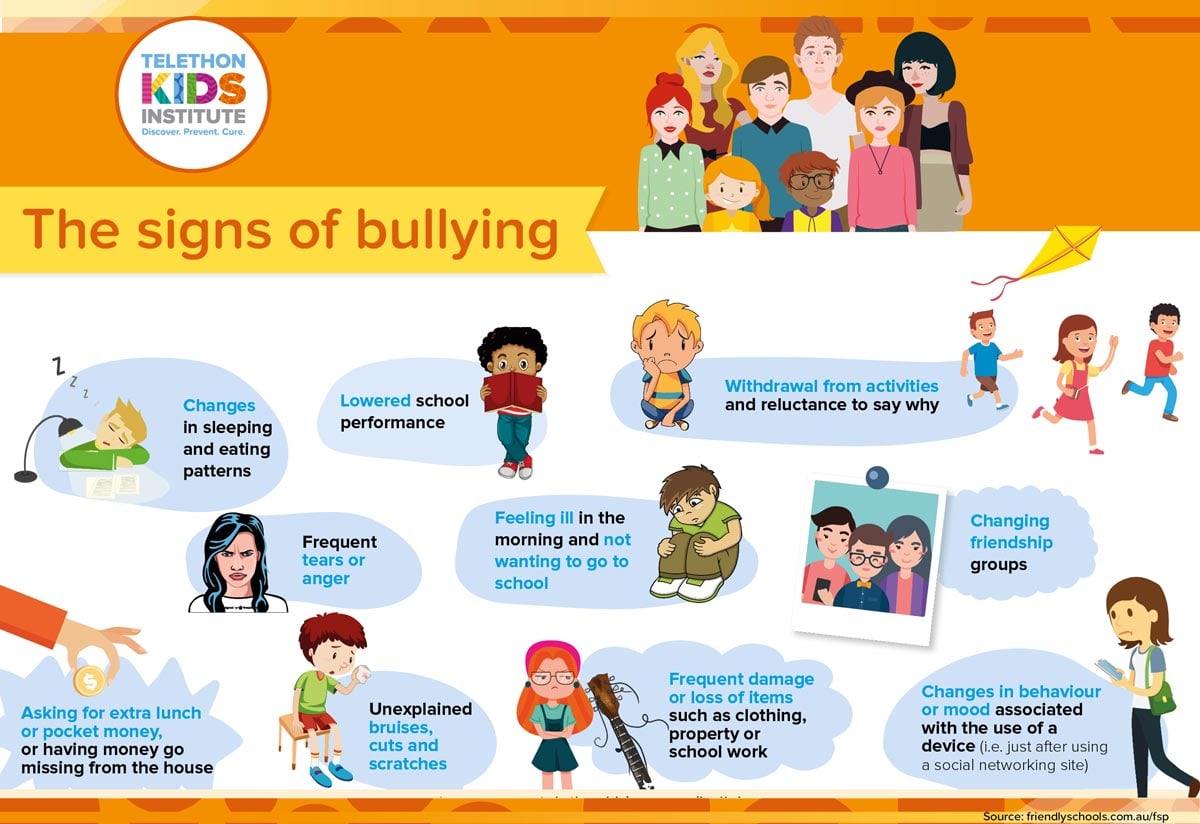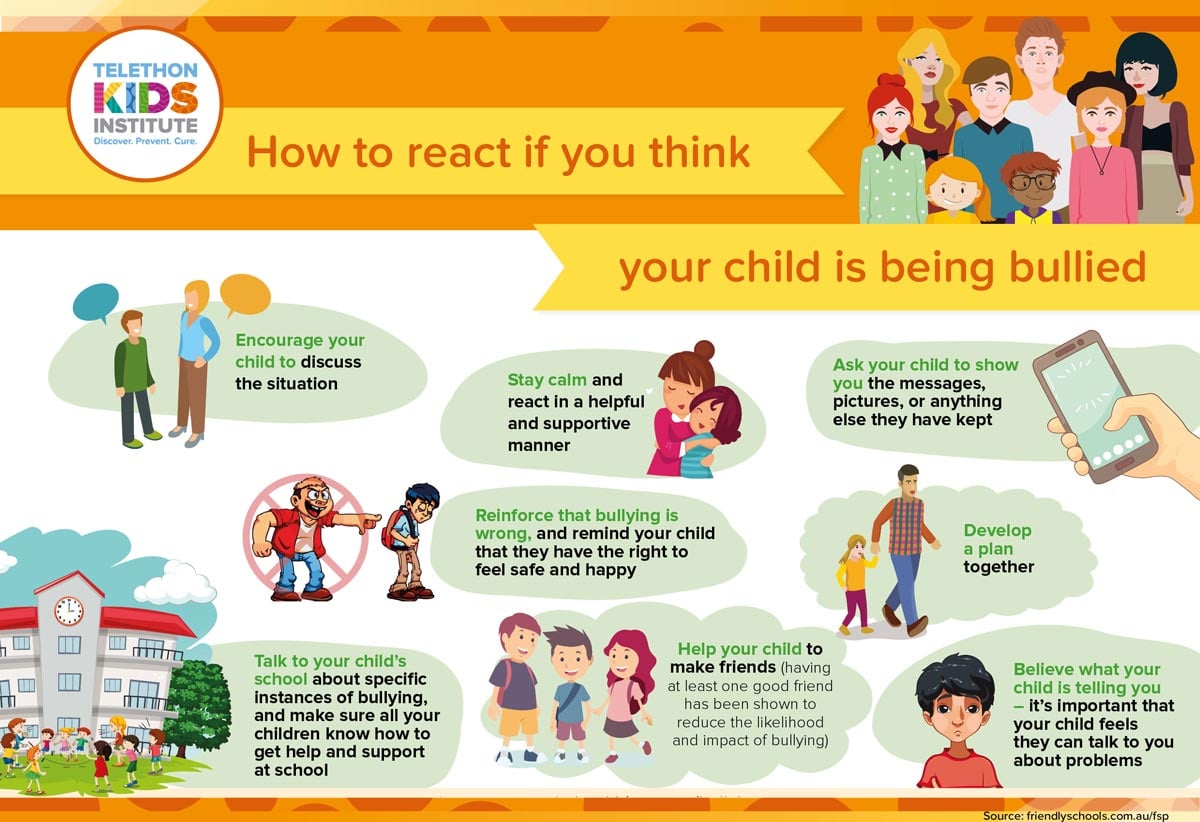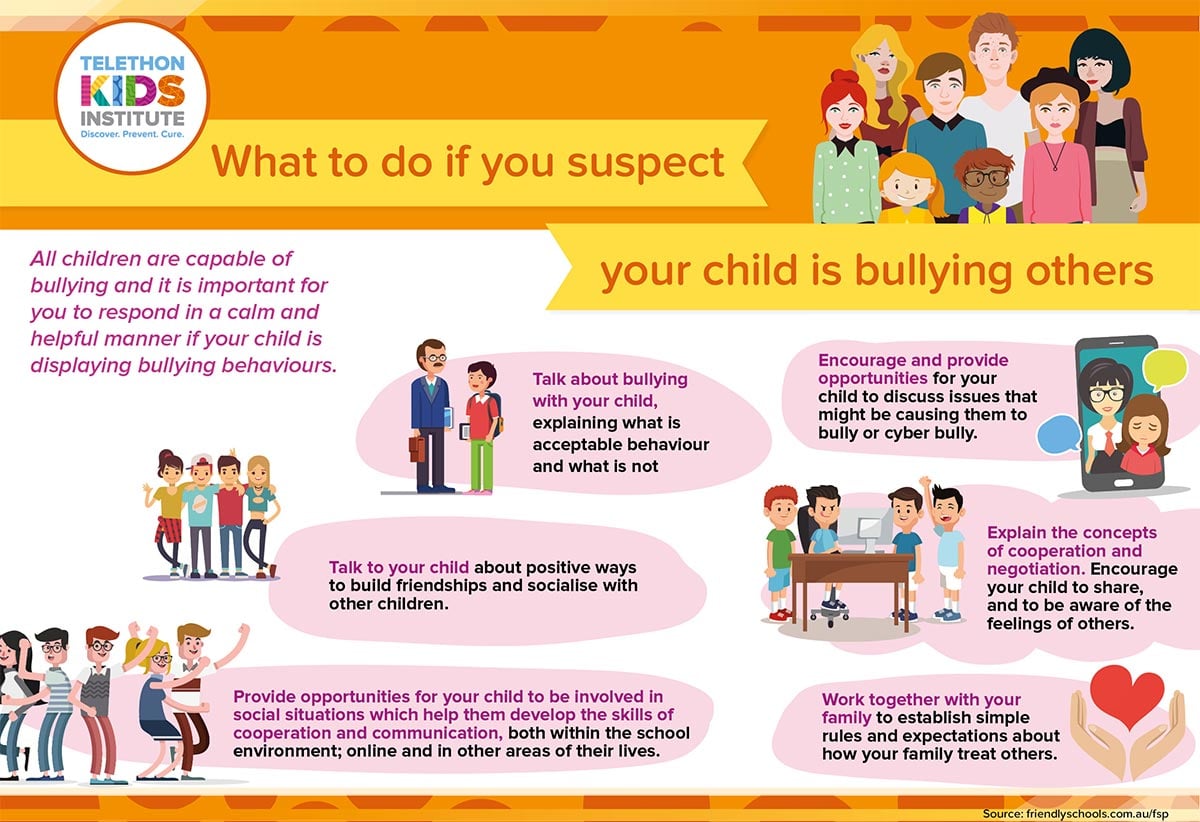Bullying can seriously affect children’s social, physical and psychological wellbeing as well as their academic achievement.
Bullying is now regarded as a health problem and not just a disciplinary problem.
Increasing evidence shows both traditional bullying (e.g. hitting, teasing) and cyberbullying have lasting effects on young people (both those who bully and those who are bullied), including damage to self-esteem, academic results and mental health.

The signs of bullying
Signs that can help you determine if someone you know and love is being bullied.

If your child is being bullied
What to do and how to react if your child is being bullied.

If your child might be the bully
All children are capable of bullying. Find out what to do if you suspect your child is bullying others.

Why do people bully others? There is no single reason which explains why bullying happens. Children and adults can be bullies for a number of reasons. Many have been bullied themselves. Sometimes it can be an expression of anger or frustration due to problems they have, such as problems at home or struggling at school or work. It can be the result of poor upbringing – some people have not been taught to be sensitive to or care about other people’s feelings. Violent games or movies may influence some people’s behaviour and make them more likely to be bullies. For some it may be an attention-seeking behaviour – for example, if they are not getting enough care and attention at home or elsewhere. Others find themselves in a position of power without the skills to use it wisely. In some schools and workplaces there is no culture of respect for others; this can make bullying more likely. Often the bully is as vulnerable a person as his or her victim and needs just as much support and help.
How common is bullying? Sadly, bullying is very common. At least one in three children is bullied at some point. Around one in ten experience bullying which is persistent, lasting six months or more. It has been estimated there are 26,000 counselling sessions per year in the UK with children related to bullying. Boys tend to bully more than girls. Most young people experience cyberbullying – as a bystander or as the person doing the bullying or as the victim. Bullying issues are reported in around one in ten places of work. The Advisory, Conciliation and Arbitration Service (ACAS) helpline receives 20,000 calls per year related to bullying or harassment. Anyone can be a victim of bullying. However, children or adults who are seen as “different” or weaker in some way are more likely to be bullied. This includes: Being overweight or underweight. Being a different race, gender, or religion. Having different sexual preferences. Having a disability, either a physical disability or a learning disability. Having a different appearance. Having an unusual name.
How are children and adults affected by bullying? The impact of bullying is huge. It causes unhappiness and distress; it can even result in suicide. For children bullied at school, the effects can last long into adulthood, affecting the rest of their lives. Being bullied at school can cause a child stress and a number of physical or mental health problems. Often children will not tell anyone they are being bullied. Some symptoms or changes in behaviour which might alert a parent, doctor or teacher to the possibility of bullying include: Physical health symptoms. A child may have tummy ache, or headaches as a result of the stress. Physical symptoms may go away at weekends or in holiday times. Not sleeping as well, or suddenly starting to have nightmares or night terrors. Not wanting to go to school, or playing truant from school. Changing the route or journey to school. Not doing as well at school as they were before. Starting to stammer. Bedwetting (in younger children). Unexplained cuts and bruises, or damaged possessions with no explanation. Being more worried or anxious, or starting to have panic attacks. Appearing to be low or depressed. Self-harming behaviour, or suicide attempts. Signs that cyberbullying is taking place can include some of the above but also: Being upset after using the internet or phone. Being very secretive about online activities and phone use. Sudden increase or decrease in texting, gaming or the use of social media. Bullying in the workplace or home can cause many symptoms for adults. These include: Physical symptoms of stress: tummy aches, headaches, higher blood pressure when checked. Stress can cause illnesses such as irritable bowel syndrome (IBS) and stomach ulcers. Worry, anxiety disorders and panic attacks. Low self-esteem and self-confidence. Depression. Not sleeping well (insomnia). Taking a lot of time off work. Thinking about suicide, or even committing suicide
How can bullying be prevented? Schools and workplaces are required by law to have plans in place to help prevent bullying. Schools often have anti-bullying projects, or teaching. Children are taught how to recognise bullying to help them not join in if they find themselves as bystanders where others are bullying. They are shown how it feels to be bullied. They should know the school policy about bullying, so they know what to do if they come across it. Staff should be trained to manage bullying situations. They may also need training so they can help children at risk of bullying due to special needs or differences. An atmosphere of respecting each other is needed, in which it does not matter if people are different from each other. On a wider scale, laws on discrimination and harassment also help prevent bullying. At home, parents and carers can reinforce the learning about safe use of the internet and social media which is taught at school. Emphasise to children that they should: Keep personal information private. Not post any images, comments or information which could be harmful to themselves or to others. Not say anything via social media which they would not say face to face. Not respond to cyberbullying. Save evidence to show a parent or teacher. Tell their parents if any online communications worry them. Parents should monitor their children’s use of the internet and check that any sites they use are age-appropriate. In a supportive, caring home, children are more likely to tell parents about bullying, so that the problem can be dealt with.